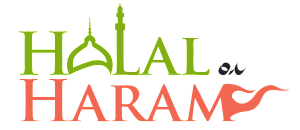Permissibility of Cosmetic Procedures in Islam
Some information about Team can be found here and remember to subscribe to our Youtube Channel.
Now we move onto the question on Permissibility of Cosmetic Procedures in Islam, I am asked about how can something be allowed in Islam where the natural way someone looks is being altered, ie altering Allah’s given features.
The great authority in the Hanafi School Imam Ibn Abideen (Alayhi rahma) states concerning the prohibition of plucking facial hair, “It is possible that the prohibition mentioned [in the hadith] is when it is done for the sake of beautifying herself for strangers; otherwise, if she has facial hair which causes her husband to dislike her appearance, then the prohibition of removing such hair seems far-fetched. This is because [self-] beautification for women is recommended in order to look good [for the husband], unless the hadith is interpreted to mean when it is done without a need, since there is harm in ‘plucking’ hair…
It is related in Al-Tatarkhaniyya from Al-Mudmarat that there is no objection in removing hairs from the eyebrows and face provided it does not cause one to resemble an effeminate (mukhannas). (Radd al-Muhtar ala ‘l-Durr al-Mukhtar 5:239)
![]()

Assalamuailakum, not sure when this article was posted but I’d appreciate a reply. There are lots of good points here. However what about Muslims who wear make up and get cosmetic work because of insecurity and psychological issues because of treatment from others. Personally I lack self esteem and confidence because of the comments made about my appearance. I carry a lot of pain regarding those situations and want to wear make up and get cosmetic work done to fix that and avoid any further negative encounters that give me more heartache and depression and hinder my life. Many years of it has taken a toll on my mental state. However I am not married. As you state doing it for your husband is only allowed.
what if one wears make up for self esteem only and not to attract attention of non mahram men? there r many girls in my (secondary) school who wear make up nd it’s just to beautify themselves in their own eyes. (note: it’s a girls’ only school)
what if one wears make up for self esteem only and not to attract attention of non mahrams? there are many girls in my [secondary] school who wear make up nd it’s just to beautify themselves in their own eyes. (note: it’s a girls’ only school)
what if one wears make up for self esteem only and not to attract attention of non mahrams? there are many girls in my [secondary] school who wear make up nd it’s just to beautify themselves in their own eyes. (note: it’s a girls’ only school)
Salam you just need to vary of your gatherings as your intentions will be good but those in the company will not be
Wasalam; we will post another post regarding your query so others can also benefit from the answer.
In accordance of rulings with Fiqh at isithalalorharam.com we say this is fine between sisters as long as its not attracting or on show for non mahram.
We have answered this earlier.